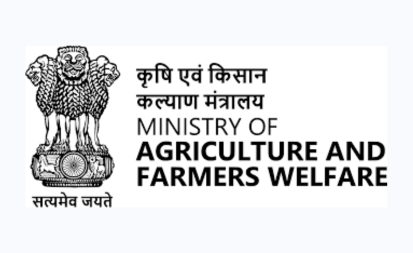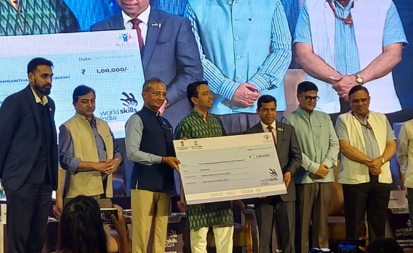Adoption of Digital and Innovative Farming Techniques
The adoption of modern and smart farming technologies by the farmers depends on various factors such as socioeconomic conditions, geographical conditions, crop grown, irrigation facilities etc. However, the Government of India supports and facilitates the

The adoption of modern and smart farming technologies by the farmers depends on various factors such as socioeconomic conditions, geographical conditions, crop grown, irrigation facilities etc. However, the Government of India supports and facilitates the State Governments to promote agriculture throughout the country and infusing modern and smart farming technologies into the agriculture sector. The use of modern machines including kisan drones is promoted under Sub-Mission on Agricultural Mechanization. Under NeGPA program, funding is given to State Governments for Digital Agriculture Projects using emerging technologies like Artificial Intelligence, and Machine Learning (AI/ML), Internet of Things (IOT), Block chain etc. A component called “Innovation and Agri-Entrepreneurship Development” has been launched under Rashtriya Krishi Vikas Yojana (RKVY-RAFTAAR) in 2018-19 with the objective of promoting innovation and agri-entrepreneurship by providing financial support and nurturing the incubation ecosystem. Under this programme, start-ups are encouraged to use innovative technologies to resolve challenges faced in agriculture and allied sectors. The funds are released to the States based on their proposals. Government is implementing Centrally Sponsored Scheme of Per Drop More Crop (PDMC) which focuses on enhancing water use efficiency at farm level through Micro Irrigation namely Drip and Sprinkler Irrigation Systems. The Micro Irrigation helps in water saving as well as reduced fertilizer usage through fertigation, labour expenses, other input costs and overall income enhancement of farmers. Recent evaluation studies of the scheme have reiterated that Micro Irrigation is relevant in achieving national priorities such as improving on-farm water use efficiency, enhancing crop productivity, improving quality of agri/horti products etc.
The Indian Council of Agricultural Research is implementing Krishi Vigyan Kendras (KVKs) scheme in different States of the Country to support farmers in the adoption of innovative farming techniques developed by National Agricultural Research Systems. The activities of KVKs include on-farm testing to identify the location specificity of technology under various farming systems; frontline demonstration to establish the production potential of improved agricultural technologies on the farmers’ fields; capacity development of farmers for knowledge and skill up gradation; and production of quality seeds, planting materials and other technology inputs for availability to the farmers. In order to develop awareness about agricultural innovations and technologies among the farmers, a large number of extension activities are taken up by the KVKs.
Further, as per the Budget Announcement for the year 2023-24, the Ministry of Agriculture and Farmers Welfare has taken various initiatives to build Digital Public Infrastructure (DPI) for agriculture as an open source, open standard and interoperable public good. These initiatives intend to provide access to technology and information to the farmers across the country to address the farmer-centric solutions, through various digital initiatives.
This information was given by the Union Minister of Agriculture and Farmers’ Welfare, Shri Arjun Munda in a written reply in Lok Sabha today.
—–
 English
English French
French German
German Italian
Italian




